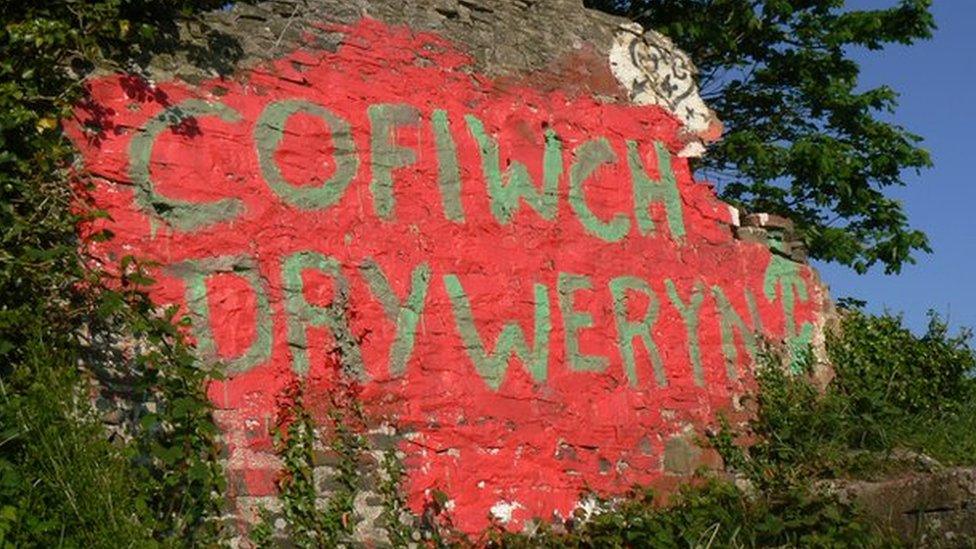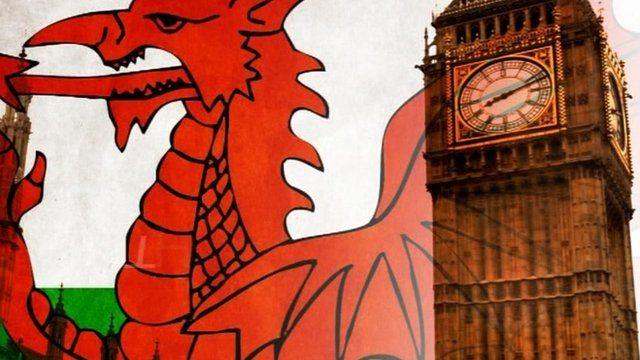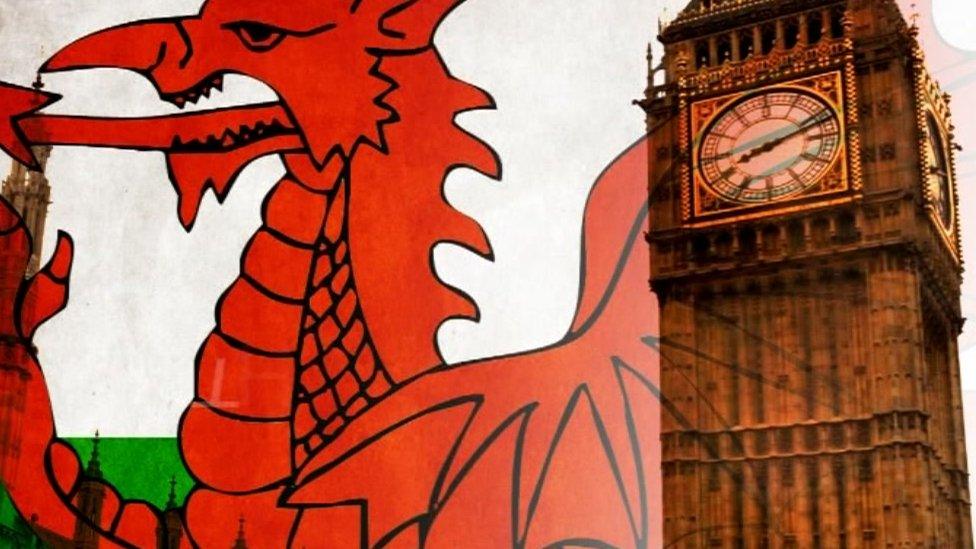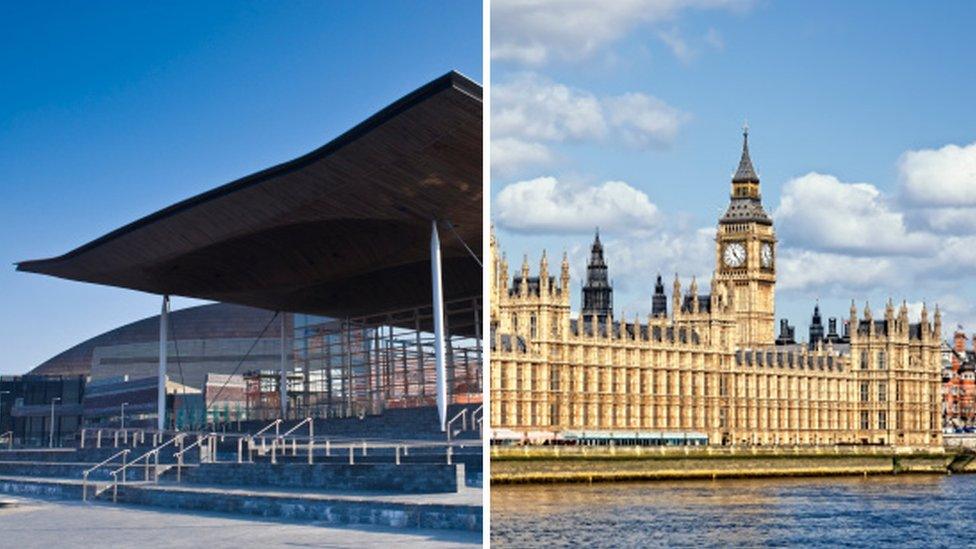Betting powers for Wales win backing from UK ministers
- Published

The power to ban high-stakes gambling machines in Wales will be given to the Welsh Government.
The UK government has confirmed the change as peers prepare for one of the final Wales Bill parliamentary debates.
It means ministers in Wales will get responsibility for licensing gaming machines where the maximum stake is more than £10.
Wales Office Minister Lord Bourne said in November he was prepared to consider the change.
But campaigners say the move does not go far enough as it only applies to new licences and not existing machines, and fear any ban could open the Welsh Government up to a "minefield" of legal challenges.
The Campaign for Fairer Gambling estimates customers in Wales lost over £50m on fixed-odds betting terminals (FOBTs) between September 2014-15.
'I know the attraction is just too much'
The terminals feature games including roulette, bingo, simulated greyhound and horse racing and slot machines, where people can gamble as much as £100 per spin, in theory every 20 seconds.
Adrian Parkinson, of the campaign, said he had seen people lose thousands of pounds in just a few hours playing roulette on the machines.
Mr Parkinson, who worked in the industry for 26 years, described customers going bankrupt, losing their jobs and homes, through their addiction to the terminals.
"When they are playing on the FOBTs it is just them and the machine, they get in the zone," he said.
"If you are playing five times faster than in a casino, you are going to lose money five times faster."
'Legal minefield'
Betting shops are restricted to four machines in each shop, but critics say that had led to clusters of shops as companies try to increase the number of the terminals on the high street.
Mr Parkinson said the new licensing powers could see the Welsh Government or Welsh local authorities face legal challenges if they tried to impose further limits on new terminals - costing the taxpayer potentially tens of thousands of pounds.
"They look at this as if it is a power for the Welsh people, it is not, it's a potential minefield," he said.
But a spokesman for the Association of British Bookmakers said betting shops in Wales were the "safest place" to gamble as they were the most highly regulated retailer on the high street.
"No betting shop in Wales can open with a licence from their local authority, and must abide by over 90 pages of regulations," he said.
'Crack cocaine of gambling'
Labour said the U-turn followed pressure from its peers, who had highlighted "one of the most addictive and problematic forms of gambling" during the Wales Bill's passage through the House of Lords.
But the party said the new law should apply to existing machines, not just new ones, and that the maximum stake involved should be £2 not £10.
The party estimated there were more than 1,500 fixed-odds betting terminals in Wales with more than £1.6bn staked annually.
Shadow Welsh Secretary Jo Stevens MP said: "This is an important victory to help stop out of control gambling that can ruin lives.
"Responsible gambling can be harmless fun, but these machines which have been dubbed 'the crack cocaine of gambling' are causing real and lasting damage."
Labour has claimed FOBTs are highly addictive, allowing players to stake up to £100 every 20 seconds, compared to the £2 maximum bet on a fruit machine.
Baroness Morgan told the Lords in November the high stakes machines create "vast social problems"
Labour AM Baroness Morgan added: "We cannot yet say whether we are satisfied with the bill, as much will rest on the Welsh Government's ability to land a decent deal with the Treasury - expected later this month.
"Ultimately the decision as to whether the Wales Bill is acceptable or not will lie with the assembly who are expected to vote on the matter in mid-January.
"We hope however that we will be sending the bill to the assembly in a better shape than when it arrived with us in the Lords."
The Association of British Bookmakers have been asked to comment.
In October, the UK government announced a review of FOTBs amid concern about their attraction to vulnerable people.
Powers over water, fishing vessels and the right to be consulted over coastguard policy are also included in the latest UK government amendments, external suggested for the Wales Bill.
It returns to the House of Lords for debate at its report stage on Wednesday.
- Published15 November 2016

- Published14 November 2016

- Published28 October 2016

- Published26 October 2016

- Published24 October 2016

- Published9 October 2016

- Published6 October 2016
